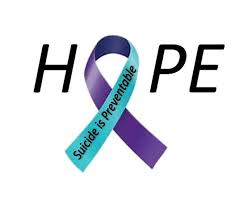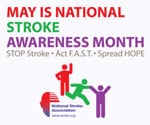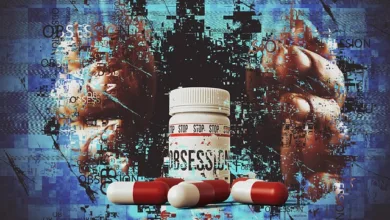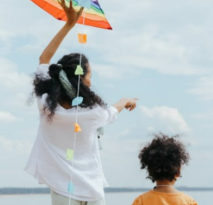Suicide in sunny US states vs suicide in sunny Caribbean Islands

 by Melissa Martin, Self-Syndicated Columnist
by Melissa Martin, Self-Syndicated Columnist
Does sun, sand, and sea influence suicide rates? Suicide was the eighth leading cause of death in Florida in 2017. The number of people that died by suicide totaled 3,187.
Florida suicide rates for white and black males were higher than the rates for white and black females. The suicide rate for white males was the highest, while the suicide rate for black females was the lowest.
Suicide was the second leading cause of death for individuals within the 25-34 age group and the third leading cause of death for individuals within 15-24 age group.
Suicide was the fourth leading cause of death for individuals within the 5-14, 35-44, and 45-54 age groups.
Pursue the Suicide Prevention Coordinating Council 2018 annual report (Department of Children and Families Office of Substance Abuse and Mental Health) at Suicide Prevention Resource Center.
In 2016, suicide deaths for Florida totaled 3,143 (14 deaths per 100,000 population). In 2016, suicide deaths for Hawaii totaled 174 (12 deaths per 100,000 population). In 2016, suicide deaths for California totaled 4,294 (11 deaths per 100,000 population). Source: USA Today.
Why is suicide higher in sunny and salty US states than in the sunny and salty Caribbean Islands?
According to World Population Review, the lowest suicide rates in the world are concentrated in the Caribbean Islands of the Bahamas, Jamaica, Grenada, Barbados, Antigua and Barbuda.
Sun, sand, and sea. Exotic fruits and veggies. Eating and enjoying. Dancing, singing, playing. Resting and relaxing on a beach playground. Breathing in the beauty of nature. The vivid colors being eye-candy for the soul. The sensuous smells teasing the tongue and nose. Tactile experiencing of enticing and tantalizing textures. Is island habitation a permanent vacation?
What factors formulate an island existence of peace, tranquility, serenity. Are illnesses prevented by salt water? Ocean air? Soothing sounds?
The following excerpt (Lesson #5) was selected from a 2014 article on Huffpost.com by freelancer Amanda Walkins. The intriguing title: 7 Life-Changing Lessons I’ve Learned Living on a Caribbean Island.
“Time is a concept, not a dictator. “Island Time” is a real thing, but it should not be solely for islands. We love watching tourists adjust to relaxation over the week or two they spend here. You can see a physical change in people as they take the watch off, leave the phone in the hotel room, and forget about where they “have to be” or are “supposed to be.” Scheduling every minute of a day makes you ask where the years went. When the sun rises, a new day begins. When it sets, a new night begins. It’s as simple as that. The sun doesn’t live by the clock and you don’t need to either. That realization can change your entire life.”
Time is a commodity and a common belief is “that time is money.” Clocks, calendars, schedules. Hurry-scurry-worry. Is that what the rest of us do? Go-go-go. Get-get-get. Do we abuse seconds, minutes, hours, and days? Do we even notice that weeks, months, and years go by? Achieve-achieve-achieve. Spend-spend-spend. Birth to death—what are we doing with the time in-between? Do islanders view time differently?
Disconnect from technology and connect to relationships. Do islanders spend more face-to-face time with people? Conversing, laughing, joking.
Does acquiring less stuff on purpose lead to less greed? Less pressure? Less judgment? Perhaps a beach bungalow is more satisfying than a million-dollar mansion.
Do islanders suffer less with depressive disorders? “A suicide attempt is a clear indication that something is gravely wrong in a person’s life. No matter the race or age of the person; how rich or poor they are, it is true that most people who die by suicide have a mental or emotional disorder.” The most common underlying disorder is depression and 30 percent to 70 percent of suicide victims suffer from major depression or bipolar disorder. – Source: Mental Health America.
Suicide is not a mental disorder, but one of the most important causes of suicide is mental illness—most often major depression or bipolar disorder.
Island countries with lower suicide rates. Just a placebo effect? Or does meditating on a mango change the mood and decrease stress? The mindfulness movement with meditation is showing promising research on the brain. Perhaps a beach is brain yoga. And the sun substitutes for hot yoga. The brain and body relate to sun, surf, and sea.
Serotonin, known as the “happy hormone” is boosted by sunlight. And elevates the mood.
Does island snoozing improve sleep and circadian rhythms? Melatonin is known as the “sleep hormone” and more sunlight during the day helps produce more melatonin in the brain at night.
Vitamin D is touted as the “sunshine vitamin.” Sunlight is a primary source of Vitamin D.
Via research we need to conduct studies and find the factors associated with lower suicide rates in island countries. And use the data for countries and cities with higher suicide rates.
September is National Suicide Month. #BeThe1To is the National Suicide Prevention Lifeline’s message for National Suicide Prevention Month and beyond, which helps spread the word about actions we can all take to prevent suicide.
The National Suicide Prevention Lifeline is available at 1-800-273-8255 or by texting “START” to the Crisis Text Line at 741-741.
Melissa Martin, Ph.D., is an author, columnist, educator, and therapist. She lives in Ohio. (melissamartincounselor@live.




